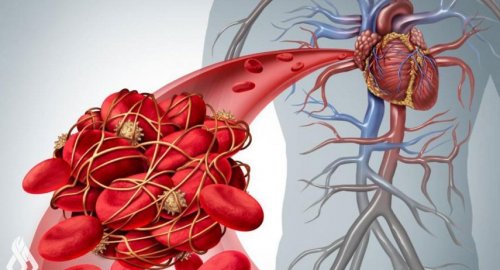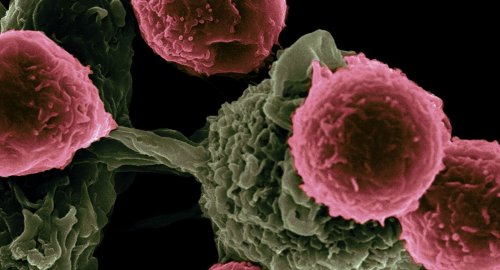
Review Finds No Link Between Serotonin Levels, Chemical Imbalance and Depression

- 23-07-2022, 09:51
INA- sources
There is no clear evidence that serotonin levels or serotonin activity are responsible for depression, according to a major review published in Molecular Psychiatry.
Researchers at the University College London (UCL) conducted an umbrella review covering decades of research on serotonin and depression. The findings suggested that depression is not likely caused by a chemical imbalance, a conclusion that calls into question what antidepressants do for patients, according to the authors.
“Many people take antidepressants because they have been led to believe their depression has a biochemical cause, but this new research suggests this belief is not grounded in evidence,” said Joanna Moncrieff, MD, professor of psychiatry at UCL, and a consultant psychiatrist at North East London NHS Foundation Trust (NELFT) in a statement.
“The popularity of the ‘chemical imbalance’ theory of depression has coincided with a huge increase in the use of antidepressants,” she added. “Prescriptions for antidepressants have risen dramatically since the 1990s, with one in six adults in England and 2% of teenagers now being prescribed an antidepressant in a given year.”
Most antidepressants are selective serotonin reuptake inhibitors (SSRIs). SSRIs were originally said to work by correcting abnormally low serotonin levels. Currently, there is no other accepted pharmacological mechanism by which antidepressants affect the symptoms of depression.
The review aimed to capture all relevant studies that have been published in the fields of research on serotonin and depression. Cumulatively, the studies in the review involved tens of thousands of participants.
Research that compared levels of serotonin and its breakdown products in the blood or brain fluids found no difference between people with depression and control participants.
Additionally, research on serotonin receptors and the serotonin transporter found weak and inconsistent evidence suggestive of higher levels of serotonin activity in people with depression. The researchers say that these findings are likely explained by the use of antidepressants among people diagnosed with depression because such effects were not reliably ruled out among studies.
The researchers also reviewed studies in which serotonin levels were artificially lowered in hundreds of people by depriving their diets of the amino acid required to make serotonin. Despite many of these studies having been cited as demonstrating a link between serotonin deficiency and depression, a meta-analysis conducted in 2007 and a sample of recent studies found that lowering serotonin in this way did not produce depression in hundreds of healthy volunteers.
However, there was very weak evidence of an association in a small subgroup of people with a family history of depression. Researchers note that this subgroup only involved 75 participants, emphasizing that more recent evidence was inconclusive.
The review included large studies looking at gene variation, involving tens of thousands of patients.
These studies included the gene for the serotonin transporter. No difference was found in these genes between people with depression and healthy controls.
Some of these studies found that stressful life events exerted a strong effect on people’s risk of becoming depressed. One famous early study found a relationship between stressful events, the type of serotonin transporter gene a person had, and the chance of depression. However, larger, more comprehensive studies have contradicted that finding, suggesting it was false.
“One interesting aspect in the studies we examined was how strong an effect adverse life events played in depression, suggesting low mood is a response to people’s lives and cannot be boiled down to a simple chemical equation,” said Mark Horowitz, MBBS, PhD, a training psychiatrist and Clinical Research Fellow in Psychiatry at UCL and NELFT, in a press release.
Collectively, these findings led the authors to the conclusion that there is “no support for the hypothesis that depression is caused by lowered serotonin activity or concentrations.”
“It is always difficult to prove a negative, but I think we can safely say that after a vast amount of research conducted over several decades, there is no convincing evidence that depression is caused by serotonin abnormalities, particularly by lower levels or reduced activity of serotonin,” Moncrieff said in a statement.
Studies show that as many as 85%-90% of the public believes that depression is caused by low serotonin or a chemical imbalance, highlighting the importance of these findings. The number of scientists and professional bodies recognizing that the chemical imbalance framing as an over-simplification is growing, according to the authors.
Notably, the authors also found evidence that people who used antidepressants had lower levels of serotonin in their blood in a large meta-analysis.
They concluded that some evidence was consistent with the possibility that long-term antidepressant use reduces serotonin concentrations, which implies that the increase in serotonin that some antidepressants produce in the short term could lead to changes in the brain that produce the opposite effect in the long term.
Researchers did not review the efficacy of antidepressants in this study. However, the authors encourage further research into treatments that focus on managing stressful and traumatic events in people’s lives, such as with psychotherapy, alongside with other practices such as exercise and mindfulness, instead of antidepressions.
They also recommend addressing underlying contributors such as poverty, stress, and loneliness.
“Our view is that patients should not be told that depression is caused by low serotonin or by a chemical imbalance, and they should not be led to believe that antidepressants work by targeting these unproven abnormalities. We do not understand what antidepressants are doing to the brain exactly, and giving people this sort of misinformation prevents them from making an informed decision about whether to take antidepressants or not,” Moncrieff concluded.
Horowitz added, “I had been taught that depression was caused by low serotonin in my psychiatry training and had even taught this to students in my own lectures. Being involved in this research was eye-opening and feels like everything I thought I knew has been flipped upside down.”
Though the researchers question the effects of antidepressants, they caution anyone considering withdrawing from use of antidepressants to consult a health professional, given the adverse effects of withdrawal.
“Thousands of people suffer from side effects of antidepressants, including the severe withdrawal effects that can occur when people try to stop them, yet prescription rates continue to rise. We believe this situation has been driven partly by the false belief that depression is due to a chemical imbalance. It is high time to inform the public that this belief is not grounded in science,” the authors wrote.
Moncrieff and Horowitz are conducting ongoing research into how to best gradually stop taking antidepressants.
source: Pharmacy Times
Al-Amiri warns of any war between Iran and the US
- politics
- 25/04/01
ChatGPT temporarily down due to pressure from cartoon trend
- Articles
- 25/03/30












